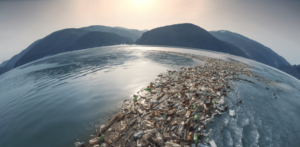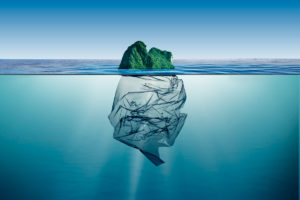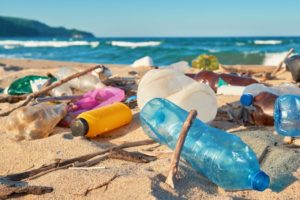Plastic pollution in the sea is one of the gravest environmental threats of our time. Seas and oceans are inundated with plastic, to the point that they form actual islands, known as plastic islands or the great garbage patch. There are currently five — two floating in the Pacific, two in the Atlantic and one in the Indian Ocean. These huge platforms of pollution float through the waves in an area larger than the United States and India.
Plastic pollution is a global issue and has been incorporated into the Sustainable Development Goals of the United Nations: Goal 14 – Life below water. The 2030 Agenda states that we need to “conserve and sustainably use the oceans, seas and marine resources for sustainable development.”
Plastic pollution in the Mediterranean Sea
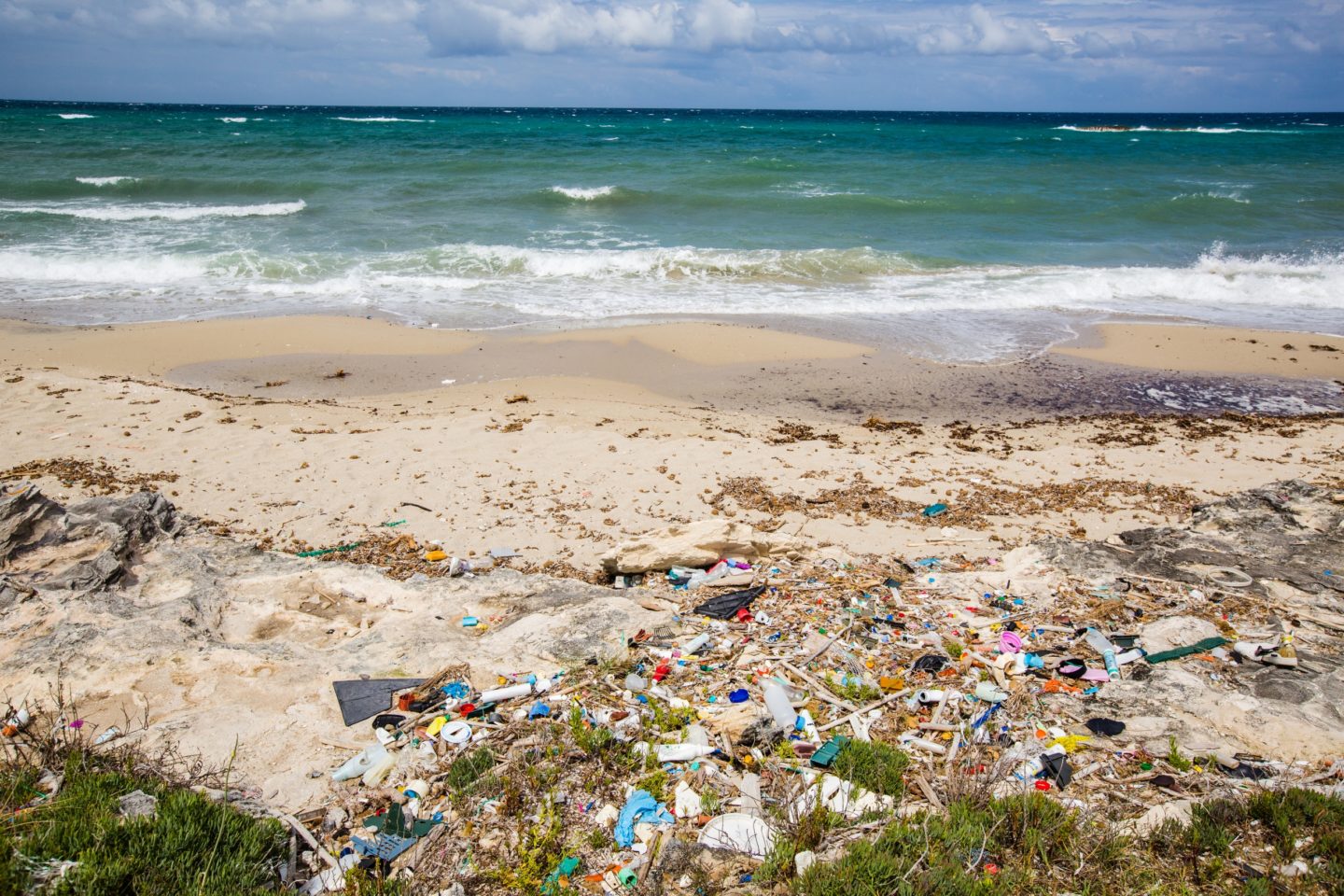
While there are no actual plastic islands in the Mediterranean, the situation is anything but rosy. Our sea is the sixth largest area of plastic pollution in the world. The numbers say it all — plastic represents 95% of waste in the Mediterranean and comes mainly from Turkey, Spain, Italy, Egypt and France. In total, Europe — the second biggest producer of plastic after China — releases 150,000-500,000 tonnes of macroplastic and 70,000-130,000 tonnes of microplastic into the sea every year. The Mediterranean Sea represents 1% of the world’s water but contains 7% of global marine microplastic pollution.
The impact of the pollution on marine wildlife is stark. Most marine species ingest plastic and microplastic. There is not a single species of marine turtle that swims in the Mediterranean that does not have plastic in its stomach. Each year, one and a half million marine animals are victims of plastic pollution in our seas.
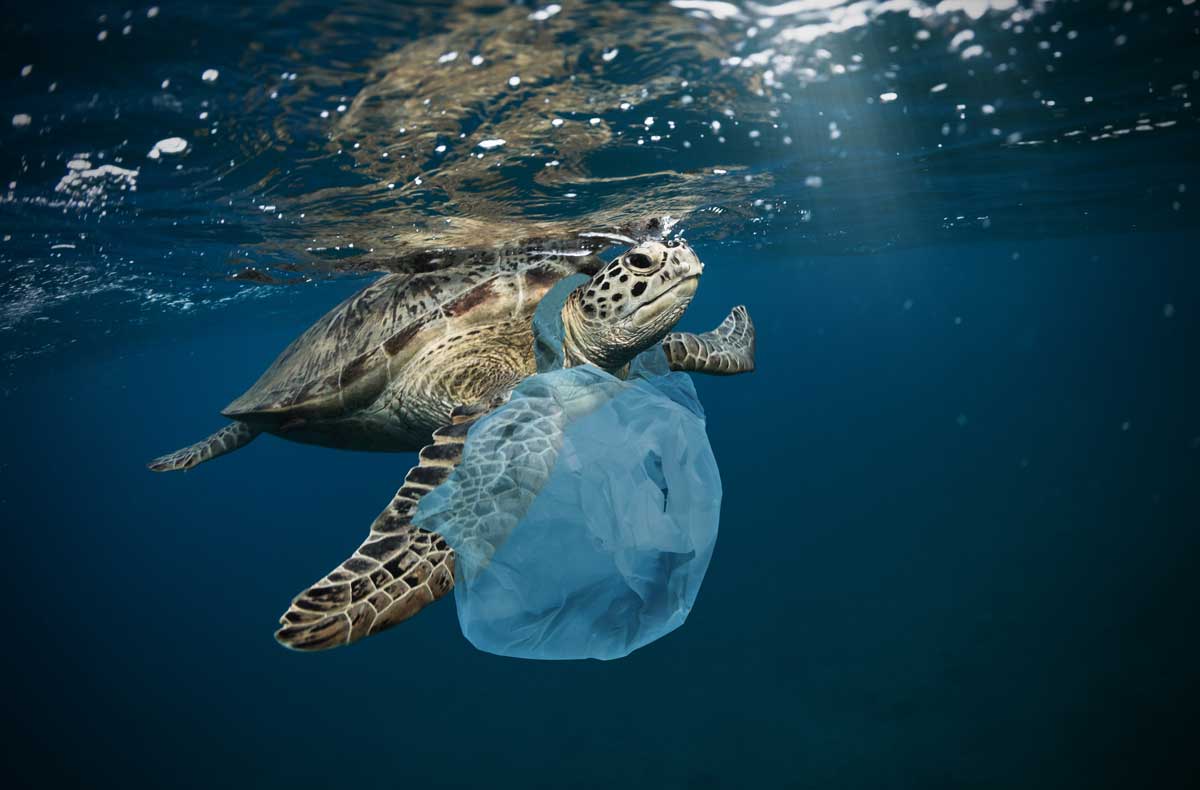
Inadequate water treatment and overfishing in Italy
In Italy, the situation has been stalled for years, with no change to either the legislation or the indicators. The 2018 Italian Sustainable Development Alliance (ASviS) Report condemns this. The list of pollution sources in our seas is topped by bad water treatment and illegal discharge of waste on our beaches, which affects one in four residents.
But the Mediterranean is also being depleted by overfishing which, the ASviS emphasises, “has reduced food production, damaged ecosystems and affected biodiversity.” According to data from 2014, overexploitation of fish stocks in Italy reached 88%. In other words, the number of fish in the Mediterranean is declining.
On a positive note: protected areas
Thankfully, in Italy, there is no shortage of protected areas. According to ASviS, these extend for a considerable area, over 3,000 km, 75% of which is located in Sardinia, Sicily and Tuscany. Multiple studies have shown that protected areas are the only way to effectively slow down biological invasion, which is associated with climate change and more specifically with rising water temperatures.

Etica Funds: leading the fight against plastic pollution
The financial system also has a role to play to reduce plastic pollution. At Etica Funds, we have decided to play our part by promoting the blue economy and the A line in the sand – The New Plastic Economy project, a global agreement to eliminate the problem of plastic altogether and protect marine life. How? By supporting the transition from the linear economy — produce, use, discard — to the circular economy, where each product is produced to be used, reused and recycled, minimising waste.
Specifically, companies that support the campaign are committed to eliminating problematic or unnecessary plastic packaging through innovation and redesign and studying new delivery models. They also commit to applying reuse models wherever possible to eliminate the need for single-use packaging. Signatories of the agreement include several multinational corporations that produce 20% of all the plastic packaging made in the world.
Environment Plastic pollution


